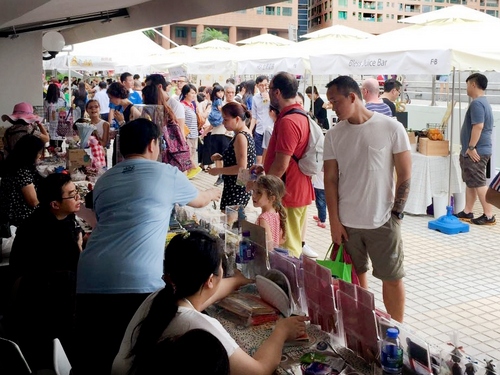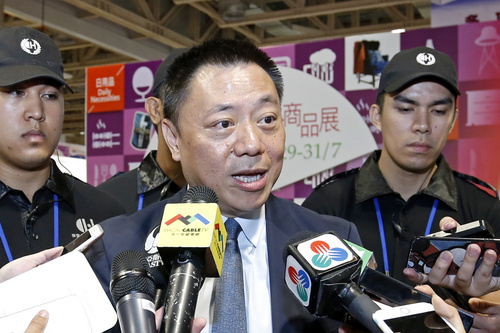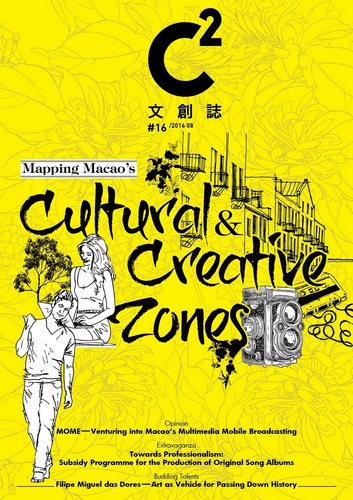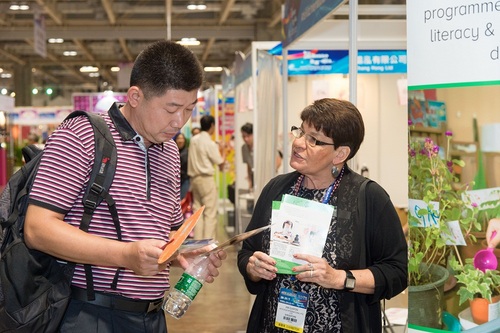Macao SAR Government Portal
News
Monetary and financial statistics – June 2016
According to statistics released today by the Monetary Authority of Macao, broad money supply continued to grow in June. As total deposits increased at a faster pace than total loans, the overall loan-to-deposit ratio of the banking sector dropped from a month earlier. Concurrently, the non-performing loan ratio, an indicator for bank asset quality, kept virtually stable. Money supply Currency in circulation grew 1.7% whereas demand deposits dropped 2.8%. M1 thus decreased 1.8% from one month earlier. Concurrently, quasi-monetary liabilities rose 1.2%. The sum of these two items, i.e. M2, increased 0.8% to MOP478.8 billion. On an annual basis, M1 and M2 dropped 9.9% and 2.0% respectively. The shares of Pataca (MOP), Hong Kong Dollar (HKD), Chinese Yuan (CNY) and United States Dollar (USD) in M2 were 30.5%, 51.5%, 6.5% and 9.1% respectively. Deposits Resident deposits increased 0.8% from the preceding month to MOP466.0 billion while non-resident deposits grew 6.7% to MOP292.7 billion. Concurrently, public sector deposits with the banking sector increased 1.2% to MOP154.7 billion. As a result, total deposits with the banking sector increased 2.7% from a month earlier to MOP913.3 billion. The shares of MOP, HKD, CNY and USD in total deposits were 20.1%, 47.4%, 8.9% and 20.7% respectively. Loans Domestic loans to the private sector increased 1.4% from a month ago to MOP403.3 billion. Among which, MOP116.7 billion was MOP-denominated, MOP262.4 billion was denominated in HKD, MOP2.4 billion was denominated in CNY and MOP19.1 billion was denominated in USD, representing 28.9%, 65.1%, 0.6% and 4.7% of the total respectively. Analysed by economic sector, “manufacturing industries”, “non-monetary financial institutions” and “wholesale and retail trade” increased at respective rates of 17.2%, 17.0% and 6.9% compared with a quarter ago, whereas “transport, warehouse and communications” and “education” dropped 8.4% and 2.5% respectively. External loans grew 0.9% to MOP371.0 billion; of which, loans denominated in MOP, HKD, CNY and USD accounted for 2.0% (MOP7.3 billion), 27.0% (MOP100.1 billion), 15.3% (MOP56.7 billion) and 49.1% (MOP182.2 billion) respectively. Operating ratios At end-June, the loan-to-deposit ratio for the resident sector rose 0.3 percentage points from the previous month to 65.0%. The ratio for both the resident and non-resident sectors dropped 1.3 percentage points to 84.8%. The one-month and three-month current assets to liabilities ratios stayed at relatively high levels of 54.4% and 56.9% respectively. Furthermore, the non-performing loan ratio was 0.1%, virtually unchanged from one month earlier and one year ago.
…
"Nam Van Lake Craft Market" continues to invite local stall operators for registration
Organised by the Cultural Affairs Bureau (IC), the registration for the third and fourth phases of Nam Van Lake Craft Market this year is now open until 19 August and 15 September respectively. All cultural and creative entities and individuals are welcome to register, in order to showcase and sell their original brands and products. Located at Anim’Arte NAM VAN, Nam Van Lake Craft Market features 26 indoor and outdoor market stalls operating from 11am to 10pm on Saturdays and Sundays, where cultural and creative entities from Macao, Mainland China and Hong Kong offer creative products for sale, hold handicraft workshops and music performances occasionally. The third phase of Nam Van Lake Craft Market will be held from 5 September to 30 October 2016, with the fourth phase from 1 November 2016 to 1 January 2017. Jointly presented by the Cultural Affairs Bureau, the Sports Bureau, the Macao Government Tourism Office and the Institute for Tourism Studies, under the governance of the Secretary for Social Affairs and Culture of the Macao S.A.R. Government, Anim’Arte NAM VAN opened in June this year and incorporates featured cafés, paddle boats, cultural and creative shops and art performances at the Nam Van Lake Square, providing a diversity of services and experience for residents and tourists as well as additional cultural, tourism and leisure elements in Macao. All interested entities and individuals are welcome to register for "Nam Van Lake Craft Market"; registration is free. IC will select stall operators according to the originality and peculiarity of their products. Application forms are now available at the Department for Promoting Cultural and Creative Industries of the Cultural Affairs Bureau (No. 567, Avenida da Praia Grande, BNU Building, 12th floor A-D, Macao) or can be downloaded at the Macao Cultural and Creative Industries Website (www.macaucci.com) and IC’s website (www.icm.gov.mo). Applicants must submit all required documents together with completed application form to the Department for Promoting Cultural and Creative Industries in person or via e-mail during the specific period stated on the Application Form. For enquiries, please contact Ms. Wong, staff member of IC, through tel. no. (853) 2892 4040 during office hours.
…
Consumer Council conducts price survey on selling prices of fresh pork and vegetables from Zhuhai, HK, and Macao
For the implementation of Section 2b), Article 10, Law 4/95/M of 12 June, Consumer Council collects prices of fresh pork and vegetables from wet markets and supermarkets for consumers’ reference. The mentioned data collected during 27 July to 2 August are used for comparing the selling prices of the same products from Zhuhai and Hong Kong. The relevant data has been uploaded to the Council’s website for consumers’ reference. The specific price surveys on fresh pork and vegetables are now available on the Council’s website (www.consumer.gov.mo), iPhone & Android ‘Supermarket Price Information Platform’ app, and the Council’s WeChat Account page. The relevant surveys include selling prices of local fresh pork and vegetables, and comparison on the respective selling prices rom Zhuhai, HK, and Macao. For enquiry, please call 8988 9315.
…
UM professor discovers document that sheds new light on the history of introduction of Western science into China during Ming dynasty
Prof António Vasconcelos de Saldanha, from the Department of History, Faculty of Social Sciences (FSS), University of Macau (UM), recently presented the rediscovered personal journal of the Jesuit priest and scientist Sabatino de Ursis (1575-1620), one of the successors of Fr Matteo Ricci in the Ming court of China, at a conference held in the Department of Sinology at the University of Tübingen in Germany. Prof Saldanha’s rediscovery brings a new understanding of the history of how Western science was introduced into China during the Ming dynasty. Apart from the important and far unknown references to the scientific production by famous Portuguese Jesuits, such as Frs João Rodrigues ‘Tçuzu’ on geography and Manuel Dias’s《天問略》 (An Explanation of the Celestial Sphere, 1615) that introduced Galileo’s work into China, the newly rediscovered manuscript shows how Sabatino de Ursis systematically discussed practical problems and a number of selected theoretical questions related to hydrology, water technology, and water management in his Hydromethods of the Great West, a treatise published in Beijing in 1612. The Portuguese manuscript brings a new understanding of this work whose publication and spread was sponsored by important scholar-officials in Ming dynasty and which was graced with a preface by Xu Guangqi before being presented to the Wanli Emperor. This Portuguese manuscript used to belong to the Jesuit archives in Macao. Since the mid-18th century, it has sunk into oblivion in the famous Jesuit collections in the royal library of Ajuda in Lisbon, where it was rediscovered and identified by Prof Saldanha. Prof Saldanha is a renowned specialist on the history of Macao and the history of the Society of Jesus in China. His research is being developed in association with another important and innovative research project ‘Translating Western Science, Technology and Medicine to Late Ming China: The Kunyu gezhi 《坤輿格致》(Investigations of the Earth’s Interior; 1640) and Taixi shuifa 《泰西水法》(Hydromethods of the Great West; 1612)’, directed by the renowned European sinologist Prof Hans Ulrich Vogel from the Section of Sinology at the Department of Chinese and Korean Studies, Tübingen University, Germany. Further results of the analysis of this hitherto unknown but important historical source will be presented at an international conference to be held in Beijing in November this year.
…
Consumer Council surveys prices of fresh pork
For the implementation of Section 2b), Article 10, Law 4/95/M of 12 June, Consumer Council conducted its specific price survey on fresh pork from wet markets and supermarkets on 2 August. Prices of different types of pork, including pork chop, ribs, pork belly, lean meat, etc. were collected. The specific product price survey on fresh pork can be found on the Council’s website (www.consumer.gov.mo), ‘Supermarket Price Information Platform’ iPhone & Android apps, and the Council’s official WeChat account. For enquiry, please call 8988 9315.
…
Transport and communications statistics for the 1st half year of 2016
Information from the Statistics and Census Service (DSEC) indicated that new registration of motor vehicles decreased by 29.8% year-on-year to 939 in June 2016. In the first half year of 2016, new registration of motor vehicles dropped by 31.6% year-on-year to 6,869, with that of motorcycles (3,809) and light private cars (2,186) falling by 25.9% and 48.4% respectively. Total number of licensed motor vehicles reached 248,680 at the end of June, up by 1.9% year-on-year; motorcycles and light private cars accounted for 52.1% and 41.0% respectively of the total. There were 1,269 traffic accident cases in June and number of injuries totalled 364. In the first half year of 2016, number of traffic accidents decreased by 2.5% year-on-year to 7,425 cases, resulting in 2,276 casualties and 4 of them were killed. Cross-border vehicle traffic totalled 427,258 trips in June 2016, up by 2.1% year-on-year. In the first half year of 2016, cross-border vehicle traffic rose slightly by 0.7% year-on-year to 2,549,159 trips, of which vehicle traffic through the Border Gate took up 77.2%. Passenger ferry movements between Macao and Mainland China and between Macao and Hong Kong decreased by 6.4% year-on-year to 10,966 trips in June, while movements in the first half year (68,080 trips) dropped by 6.3%. Commercial flight movements at the Macao International Airport totalled 4,422 in June 2016, up by 7.1% year-on-year. In the first half year of 2016, commercial flight movements increased by 6.8% year-on-year to 27,202 trips; flight movements to and from Mainland China and Vietnam dropped by 2.9% and 3.1% while movements to and from Japan, Thailand and Taiwan rose by 64.8%, 21.1% and 16.6% respectively. Helicopter flight movements between Macao and Mainland China and between Macao and Hong Kong decreased by 11.2% year-on-year to 1,074 trips in June, while movements in the first half year (4,808 trips) fell by 31.8%. Gross weight of seaborne containerized cargo dropped by 35.1% year-on-year to 14,747 tonnes in June 2016. Seaborne container throughput totalled 10,273 TEU, equivalent to 7,180 containers handled, down by 18.9% and 17.4% respectively year-on-year. In the first half year of 2016, gross weight of seaborne containerized cargo decreased by 28.4% year-on-year to 95,240 tonnes, of which 49.9% passed through Inner Harbour; seaborne container throughput (63,201 TEU) and containers handled (43,164) dropped by 15.0% and 13.7% respectively. Gross weight of containerized cargo by land decreased by 7.0% year-on-year to 1,955 tonnes in June. In the first half year of 2016, gross weight of containerized cargo by land rose by 20.2% year-on-year to 12,184 tonnes, of which cargo through the Checkpoint of Cotai (10,395 tonnes) accounted for 85.3%. The Macao International Airport handled 2,540 tonnes of air cargo in June 2016, up by 12.2% year-on-year. In the first half year of 2016, inward air cargo (3,070 tonnes) decreased by 11.9% year-on-year while outward air cargo (8,867 tonnes) increased by 20.4%; inward air cargo from Taiwan (57.7% of total) dropped by 15.0% whereas outward air cargo to Taiwan (44.5% of total) rose by 33.7%. Transit air cargo (3,180 tonnes) increased by 2.3% year-on-year in the first half year. At the end of June 2016, number of fixed-line telephone subscribers decreased by 6.9% year-on-year to 140,173. Number of mobile telephone subscribers rose slightly by 0.5% to 1,874,950, of which stored-value GSM card subscribers (1,191,099) accounted for 63.5%. Number of internet subscribers increased by 10.7% year-on-year to 350,879. In the first half year of 2016, the cumulative duration of internet usage rose by 12.4% year-on-year to 582 million hours.
…
Positive economic outlook for Macao in the second half of 2016
The Secretary for Economy and Finance, Mr Leong Vai Tac, said it was difficult for the Government to predict – at this stage – the city’s gaming revenue for the second half of 2016, given the uncertain and volatile environment in international markets. The Government has been paying close attention to the “L-shaped” growth of the economy worldwide and the possible continuation of such a pattern in the near future, Mr Leong told reporters on Friday (29 July). However, he said Macao’s economic outlook in the second half of the year was positive: after years of expansion, the city’s efforts in promoting non-gaming offerings had been proven effective in attracting a greater number of family visitors. Additionally, local industries had been either developed or enhanced to strengthen further Macao’s economic competitiveness. In addition, the Secretary said the Government was evaluating applications – by Macao resorts that would soon begin operation – for new-to-market live-dealer gaming tables. The principles applied when dealing with applications for new-to-market gaming tables had not changed: such tables must account for no more than 3 percent growth annually – measured on a compounded basis – in the total number of those gaming products in the market. The cap policy applies up to the beginning of the year 2023. The Government would also take into consideration the following: whether a new project would contribute to the transformation of Macao into a world centre of tourism and leisure; the degree of each project’s integration in business terms with local small- and medium-sized enterprises; and what each resort had to offer in terms of non-gaming elements. Mr Leong also commented on issues relating to the Dynamic Macao Business and Trade Fair, a Government-subsidised roadshow visiting places on the mainland that is designed to promote Macao’s tourism and trade services. The Government would consider measures to optimise the current mechanism for subsidy related to the roadshow, in order to ensure public funds were spent on promoting Macao as a city of quality and integrity, he said. The Secretary stated he had directed the Macao Trade and Investment Promotion Institute to submit a report providing full details on the issue.
…
Government invites residents to name first Macao-born giant panda cubs
The Government is to invite all residents to suggest respective Chinese names for the first giant panda cubs to be born in Macao. The period for submission of name suggestions is from 8 to 31 August inclusive. All Macao identity card holders (permanent and non-permanent) are welcome to suggest one name for each of the twin male cubs. The criteria by which name suggestions would be judged would be: the actual meaning of the proposed names; the creative thinking put into the choice of suggested names; the sound of the names in spoken Chinese; the naming practices applied to those giant pandas given by China to foreign countries; and the names previously applied to giant pandas worldwide. Representatives of the Civic and Municipal Affairs Bureau and representatives from the Chengdu Research Base of Giant Panda Breeding will choose from all the submissions a pair of names. Every identity card holder is allowed to submit a pair of names (i.e., one name for each giant panda cub). Residents will be able to do so – and should offer a brief description of the suggested names – via the website dedicated to Macao’s giant pandas, at: http://www.macaupanda.org.mo. Written suggestions can be handed in via the service centres of the Civic and Municipal Affairs Bureau. Female giant panda “Xin Xin” gave birth to the twins on 26 June at the Macao Giant Panda Pavilion. At birth the panda cubs were nicknamed respectively “Dabao” and “Xiaobao”. “Xin Xin” and the father of the cubs – a male giant panda named “Kai Kai” – are housed at the Macao Giant Panda Pavilion. A pair of giant pandas was given by the Central Government to Macao in 2015 as a gift for the 15th anniversary of the establishment of the Macao Special Administrative Region.
…
Sixteenth issue of C2discusses the cultural and creative industries park in Macao
Published by the Cultural Affairs Bureau and produced by 100 Plus Cultural Creative Development Ltd., the sixteenth issue of C2 magazine will be launched on Wednesday, 3 August. The cultural and creative industries park aims to aggregate the cultural and creative industries, inspiring the practitioners’ creativity. Recently, the demand for cultural and creative space has been increasing. There are different kinds of spaces and diverse operation styles, creating flexibility and unlimited potential. In the column “Feature”, C2 interviews several cultural and creative industries parks in Macao, including the operators and participants in the Macau Design Centre and in the 678 Cultural Creative Park. It discusses the challenges and opportunities the cultural and creative spaces are facing. Dirco Fong, Chief Executive of the Macau Design Centre which provides cultural and creative industries service platform and is subsidized by the Cultural Industries Fund, hopes the Government can make a balance between the usage of public funds and the actual operation of the cultural and creative industries. Andy Szeto, Chairman of the Cowin Group which has invested various cultural and creative projects in Macao, believes that providing varied cultural and creative industries space is the first step for developing the industry and that enriching the content of products and enlarging the markets is crucial. This edition also features an analysis of the case of D2 Place, a landmark of the Hong Kong cultural and creative industries as well as the functions and features of the cultural and creative parks in Macao. The column “Opinion” invites Joe Liu, director of MOME, a multimedia broadcasting platform in Macao, to give his insight on multimedia broadcast. MOME TV breaks through the traditional bus media. It uses creative TV programmes to spur O2O (Online to Offline) consuming behaviour. Organised by the Cultural Affairs Bureau, the first edition of the Subsidy Programme for the Production of Original Song Albums was successfully conducted, and subsidised albums have been released recently. “Extravaganza” invites two of the beneficiaries, Leong Chi Long and Chang Heng Ian, and Chan Peng Fai, Vice President of the Cultural Affairs Bureau, to discuss how the programme promotes the development of the music industry in Macao. The new column “Budding Talents” interviews Filipe Miguel das Dores, an emerging local watercolour painter as awarded in London. He explains how he combines the blueprint of architecture with watercolour painting. “Blogs” columnists, Joe Tang, Ho Ka Cheng, Yi-Hsin Lin, Yap Seow Choong, Ron Lam, Ashley Chong and Cheong Sio Pang give more perspectives on the development of the cultural and creative industries. C2 is a trilingual magazine (in Chinese, Portuguese and English). Readers are welcome to browse or download the magazine at www.c2magazine.mo. C2 is a bimonthly magazine issued on the first Wednesday every two months. The next issue will be launched on 5 October, 2016. The email subscription function is now available. Simply click the “subscribe” button on the right corner of our webpage and enter your email address to subscribe to the C2 magazine. For the latest updates, you may also visit the magazine’s page on Facebook at: www.facebook.com/c2magazine.macau, or on WeChat, by clicking “add friend” and inputting “c2magazine” in the ID column. For enquiries, please contact us through the email c2magazine.macau@gmail.com.
…
MFE a Great Success
“The 2016 Macao Franchise Expo” (2016MFE) came closed yesterday. It was also held at the same time and location as the “2016 Guangdong & Macao Branded Products Fair”. The two concurrently run expos were a great success and enterprises reacted enthusiastically to the exhibitions, the attendance was higher than that of last year. By using the rising trends of “Internet +”, MFE held related forums to show enterprises how to seize the new opportunities in the Internet Era. Many exhibitors expressed that Macao was a gateway for them to enter the Mainland China market. They hoped to break geographical limitations and find more business opportunities through MFE. Exhibitors achieved various results in the three-day event. As a platform, MFE played a positive role in the exhibition of international brands and the promotion of the development of chain and franchise businesses. The New Online Business Matching Platform Service Achieved Initial Success The three-day event attracted about 17.000 visitors, including nearly 2.600 trade visitors. There were 103 matching sessions in the business matching area in the three day exhibition, which mainly involved franchising, chain stores, brand agency and others. According to figures from the organiser, 1,314 business negotiation sessions were conducted for specially invited trade visitors. Contracts for 18 projects were signed on-site involving the co-operation of chambers of commerce and associations; chain and franchising projects in the food and beverage industry; brand agency services for the marketing of branded products; and brand franchising and so on. The year MFE promoted the self-matching service through “Online Business Matching Service Platform” for the first time and encouraged exhibitors/enterprises/purchasing agents to register so as to take part in communication and matching. In the three day exhibition, there were 198 enterprises involved in business negotiations using the business matching service platform. Discussion on Internet Opportunities Becomes the Hot Button Topic During the exhibition, several forums were held under different themes and a series of seminars and presentations were organised. Among which, “Forum on International Franchise Business Opportunities” was held on the first day. It was themed “New Horizon for Chain and Franchise in the Internet Era”, which attracted the participation of more than 150 young business starters and SME entrepreneurs. On the third day, in the Opportunities of Starting an Online Business Presentation, Taiwan “Beauty88 Online Shopping Mall” introduced the advantages of Internet entrepreneurship including key points of social publicity and integrated O2O mode “Online Purchase, Offline Service”. It was also pointed out that e-commerce was of great potential in Southeast Asian countries. In the forum “The Secrets of Using System to Develop Business Opportunities”, the president of Asia Branding & Franchising Association, Karen Kwan, shared her experience on how to achieve a situation of wealth-raising by using the information system. She hoped that entrepreneurs would keep up with modern trends through continuous education, and make full use of the system models to manage their company’s brands. Taking Macao as the Starting Point of Expending to Neighbouring Markets As there has been growing international participation over the years, attracting a larger number of globally-renowned brands, MFE continues to consolidate its role as a platform for business start-ups and investment. Mr. Luis Martinez, who is in charge of WJ-EVENTS from Portugal, expressed his wish to expand business in Macao through MFE. He also believed that Macao had more advantages in market development than Portugal. A renowned Brazilian footwear brand successfully found a franchising partner in MFE and communications between the two parties were in progress. There were also many well-known Japanese food and beverage enterprises in this year’s exhibition. Most of them saw finding new partnerships the starting point for expanding their market into Mainland China. A lot of exhibitors consulted with their preferred hotels and some of them were even in the process of field visits. Ken Watanabe, who is in charge of Tentakaku Co. Ltd. stated that although market competition for Japanese food in Hong Kong and Macao was fierce, as the No.1 Ramen noodle maker in Japan, they were confident about cracking the Macao market. Hiroshi Mori, who is in charge of another food and beverage enterprise Chibo Holdings Co. Ltd. thought there was no okonomiyaki specialty store of their type in Macao. They were in negotiation with Macao hotels and were confident about their success. The renowned bakery brand Cube Toast attended MFE for the first time but signed many purchasing orders. They felt it was pretty successful and fruitful.
…







